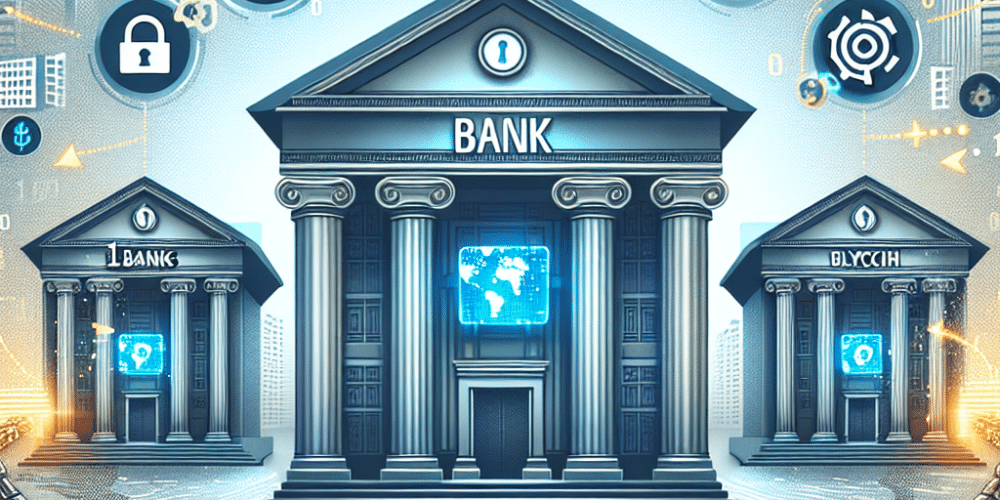In an unprecedented development that marks a significant shift in the financial services industry, several leading global banks have recently announced the integration of blockchain technology into their core banking systems. This move, aimed at enhancing security and operational efficiency, underscores the growing confidence in blockchain’s potential to transform financial services.
The announcement was made jointly by some of the world’s top banks during the recent Global Financial Technology Conference held in London. The consortium includes institutions such as JP Morgan Chase, HSBC, and Deutsche Bank. These banks have been exploring blockchain’s benefits independently over the past few years but have now decided to collaborate to establish a unified, secure blockchain network.
The Promise of Blockchain
Blockchain technology offers a decentralized ledger system that ensures transparency and security, significantly reducing the possibilities of fraud. Each transaction on the blockchain is recorded as a “block” of data, which is securely linked to the preceding and subsequent transactions, forming a chain that is nearly impossible to alter. This feature is particularly attractive to the banking sector, where security and trust are paramount.
Implementation Strategy
The banks have laid out a phased strategy for integrating blockchain into their systems. The initial phase focuses on international money transfers, a sector prone to delays and fraud. Blockchain will enable almost instantaneous transactions across borders, with significantly reduced costs and enhanced security.
Following this, the consortium plans to extend blockchain applications to other areas such as loan issuance, trade finance, and compliance reporting. This broader integration will leverage blockchain’s ability to provide a single source of truth, streamline operations, and ensure compliance with regulatory demands effortlessly.
Potential Impact on the Industry
The adoption of blockchain by such significant players in the banking sector is likely to set a precedent for other financial institutions worldwide. Experts predict that this move will not only benefit the banks in terms of decreased operational costs and enhanced efficiency but also improve the customer experience by speeding up transactions and increasing transparency.
Moreover, this adoption could foster greater stability in the global financial system. Blockchain’s inherent features can help mitigate the risks associated with traditional banking, such as credit risks, operational risks, and the risks associated with manual handling of vast amounts of data.
Challenges Ahead
Despite the clear benefits, the integration of blockchain into existing banking systems is not without challenges. Issues such as data privacy, regulatory compliance, and the technical complexities associated with deploying blockchain on a large scale need to be addressed. Additionally, there is a significant need for skillsets specialized in blockchain within the banking workforce, which currently lacks in quantity.
To tackle these challenges, the consortium has announced partnerships with leading blockchain technology providers and academic institutions. These partnerships aim to foster innovation, develop tailor-made solutions, and train staff to be adept in the new system.
Looking Forward
The proactive approach of these major banks in adopting blockchain technology could herald a new era in banking. As the financial sector faces increasing demands for transparency and efficiency, blockchain stands out as a promising solution to many of its longstanding issues.
This initiative not only highlights the potential of blockchain but also sets a benchmark for other sectors to explore and adopt this technology. With its ability to provide secure, transparent, and efficient transaction mechanisms, blockchain continues to prove its worth as a transformative tool for various industries.
Conclusion
As we witness this significant shift towards blockchain in banking, it is clear that we are on the cusp of a technological revolution in the financial sector. The journey will be fraught with challenges, but the potential benefits for banks and their customers are unmistakable. This bold move by the world’s leading banks may well pave the way for a new standard in banking, redefining the global financial landscape in the years to come.




